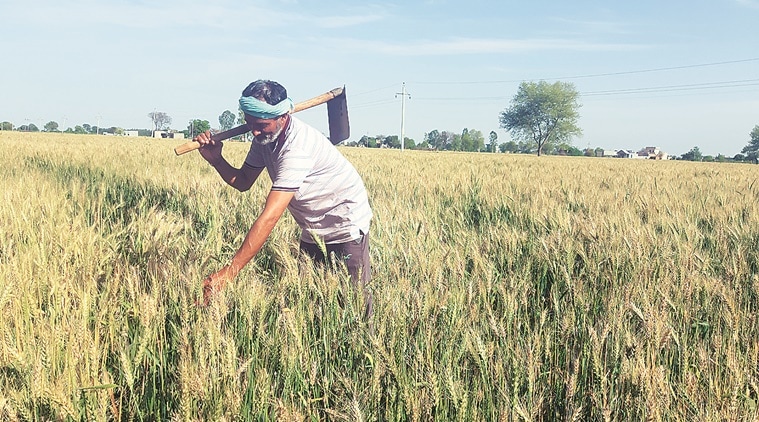 Wheat harvesting in Punjab started on April 15 and nearly 90 per cent of it has already been completed. (Express Photo)
Wheat harvesting in Punjab started on April 15 and nearly 90 per cent of it has already been completed. (Express Photo)
After a brief lull, wheat stubble burning has started in Punjab during the ongoing wheat harvesting season. Till Saturday, around 77 incidents of stubble burning were recorded by the Punjab Remote Sensing Centre (PRSC), Ludhiana. Last year till May 2, this number was more than double at 162 incidents.
Farmer outfits and Punjab Pollution Control Board (PPCB) had appealed to farmers to avoid stubble burning amid COVID-19 crisis this year. But data sourced from the PRSC showed that a maximum of 13 cases of stubble burning were recorded in Bathinda district, followed by Sangrur (8) and Mansa (7). Six incidents each were recorded in Barnala, Ferozpur, Kapurthala, and Mukatsar Sahib districts. Four field fires were recorded in Amritsar and three each in Jalandhar, Ludhiana, Fazilka, and Fatehgarh Sahib. Patiala reported two incidents, and so did Gurdaspur and Faridkot. Pathankot, Moga, and Hoshiarpur reported one stubble burning incident each.
During this wheat harvesting season, no stubble burning incident has been recorded in Tarn Taran, Mohali, Ropar, and Nawanshahr.
Dr Anil Sood, head of ACM Division, PRCS, said that there were no cases till a few days back and now 77 fires have been recorded by the satellite. He said that as per the record there were 162 and 806 fires in Punjab in 2019 and 2018, respectively, till May 2. He said that the pace this year was slower, and farmers can still be stopped from doing it.
Wheat harvesting in Punjab started on April 15 and nearly 90 per cent of it has already been completed.